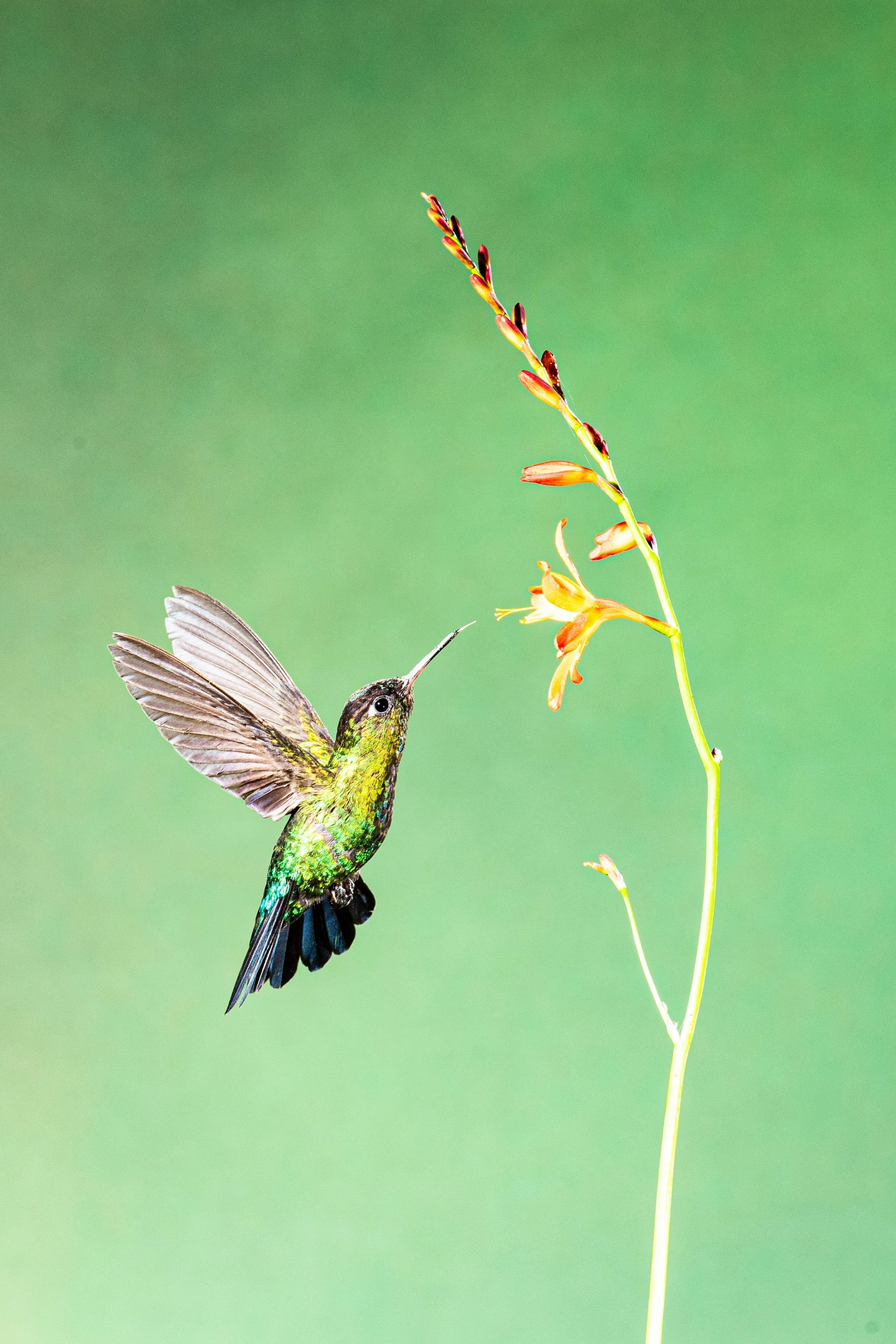#Islam
Lessons From Surah Al-Mulk: How The Bees And Birds Teach Us About Tawakkul
Published

Allah 

“It is He Who has made the earth subservient to you, so walk in the path thereof and eat of His provision, and to Him will be the resurrection,” [Surah Al-Mulk; 67:15]
Allah 
Understanding Tawakkul Through Surah Al-Mulk
Keep supporting MuslimMatters for the sake of Allah
Alhamdulillah, we're at over 850 supporters. Help us get to 900 supporters this month. All it takes is a small gift from a reader like you to keep us going, for just $2 / month.
The Prophet (SAW) has taught us the best of deeds are those that done consistently, even if they are small. Click here to support MuslimMatters with a monthly donation of $2 per month. Set it and collect blessings from Allah (swt) for the khayr you're supporting without thinking about it.
This chapter of the Qur’an is actually – in my humble opinion – a yardstick for understanding tawakkul (trust and complete reliance on Allah 


“Blessed be He in Whose hands is the Dominion, and He is able to do all things.”
He then says in the last verse,
“Say: Have you thought, ‘if your water were to disappear into the earth, who then can supply you with clear-flowing water?'”
Yes, we can surely explore the earth, look for regions holding water, and successfully discover fountain sources and streams. But without Allah’s 

The Balance Between Striving and Divine Provision
There is a hintful touch in the verse mentioned earlier. Allah 


He made it available to you out of His Mercy and Care for you. Hence, if Allah 


Those who misunderstand the Plan of Allah 


Initially, this question was presented before the Prophet 



The work that is referred to here is not that of the acts of worship (Salah, Zakah, Sawm, Haj, etc). Rather, it is the work pertaining to our subsistence. Furthermore, we do not refer to haram (forbidden) work and haram subsistence – for we believe, inshaAllah, that the reader is conscious of that. It is the halal (permissible) work and the halal livelihood that we are concerned about here, for it is more tempting to the believer.
What are the guidelines and limits of the halal work? How much dedication do we give it? Do we attribute the source of subsistence to our work or to Allah’s 

Islam’s Position on Work and Self-Reliance

Islam does not condone passiveness, but it also strongly rejects laziness and dependency on others. [PC: Do Nhu (unsplash)]
 said: “Begging is forbidden except when there is great debt, suffering, injury, or abasing poverty.” [Abu Dawud and Al-Bayhaqi] He
said: “Begging is forbidden except when there is great debt, suffering, injury, or abasing poverty.” [Abu Dawud and Al-Bayhaqi] He  also said: “It is much better for one of you to take his rope and go to chop some wood (for his livelihood) than to beg from people, whether they give him anything or deny him.” [Al-Bukhari, Ibn Majah, and others]
also said: “It is much better for one of you to take his rope and go to chop some wood (for his livelihood) than to beg from people, whether they give him anything or deny him.” [Al-Bukhari, Ibn Majah, and others]
The Prophet himself 
The Prophet 

The True Meaning of Tawakkul
However, though we might strive hard to secure our livelihood, we should not attribute our achievements solely to the work we do, but to Allah 
The only one on Whom we should rely is Allah 

“…And rely on the Living One (Allah), Who will never die, and celebrate His praises and thanks. And sufficient is He to be acquainted with the sins of His slaves.” [Surah Al-Furqan; 25:58]
Whoever attaches his/her heart to his job, or to his/her employer, or to any created beings in order for them to provide him/her with sustenance or to make him/her prosperous and successful, and so on, he/she has submitted to them. And the more one relies on the created beings, the weaker becomes one’s submission to Allah 
So, as much as Allah 

Two Extreme Misunderstandings of Tawakkul
Those who deviated from the right concept of tawakkul have fallen into two extremes. The first group of people are those attracted by the temptations of this world, and have gone so far as to forget their relationship with Allah 
Such people have become – knowingly or unknowingly – slaves of their own desires. Such people will ultimately claim that all their achievements are but the result of their own work and that Allah 

Allah 
“Have you then seen the sort of man who rejects Our signs, yet says: ‘I shall certainly be given wealth and children.'”
Allah 

“Has he penetrated to the unseen, or has he taken a promise with Allah?” [Surah Maryam; 19:77-78]
This type of man who rejects Allah 

The second group of people are those who understood the reliance on Allah 
For them, reliance on Allah 
Unfortunately, neither of these two groups, have understood the true meaning of tawakkul according to the Book of Allah 



Examples of True Tawakkul In Creation
The Example of the Bee:
Through the instinctive behavior of some of His Creatures and the sublime conduct of His Prophets and righteous slaves, Allah 
Allah says:
“And your Lord taught the bee to build its cells in hills, on trees, and in men’s habitation; then to eat of all the produce of the earth, and follow the way of your Lord made smooth: There issues from within their bodies a drink of varying colors, wherein is healing for men: Verily in this is a sign for those who give thought.” [Surah Al-Nahl; 16:68-69]
Look at the gigantic workload that the bee has to carry out in order to produce its honey. The bee finds the most inaccessible places, in the hills, in the trees, and even among the habitation of men. It assimilates the juice of various kinds of flowers and fruit, and forms within its body the honey which it stores in its cells of wax. The different kinds of food from which it makes its honey give different colors to the honey.
Now, could not Allah 



But by observing the work cycle of the bee and by tasting its sweet and wholesome honey, one can understand and appreciate better the nature and behavior of the bee. A behavior whose ingredients are hard work and complete trust in Allah 
The Example of the Birds:
Let us look at another creature of Allah 


“Do they not observe the birds above them, spreading their wings and folding them in? None can uphold them except the Most Gracious: Truly it is He that watches over all things,” [Surah Al-Mulk 67:19]
As He 



“Were you to put your complete trust in Allah, He would provide for you as He provides for the birds. They issue forth hungry in the morning and return filled in the evening.” [PC: Birger Strahl (unsplash)]
 . They have understood that they have to exert effort and rely on Allah
. They have understood that they have to exert effort and rely on Allah  alone to uphold them high. As opposed to many rebellious men, birds recognize and exercise total tawakkul in Allah
alone to uphold them high. As opposed to many rebellious men, birds recognize and exercise total tawakkul in Allah  without giving up the work.
without giving up the work.
In pursuing this way of life, the birds have become the example to follow for how true tawakkul should be, and how Allah 
The Prophet
said: “Were you to put your complete trust in Allah, He would provide for you as He provides for the birds. They issue forth hungry in the morning and return filled in the evening.” [Al-Tirmidhi]
Did the birds remain in their nest waiting for Allah’s 


The Example of Maryam 
Now back to the world of mankind, here is an ultimate example of tawakkul. This is the story of an expectant mother who retired with her conceived baby to a remote area. The pains of childbirth drove her to the trunk of a palm tree. She was alone with no one to attend her. She was hungry and thirsty. She cried: “Ah! would that I had died before this! Would that I had been forgotten and out of sight!” [Surah Maryam, 19:23] But a voice cried to her from beneath the palm tree: “Grieve not! for your Lord has provided a water stream beneath you.” [Surah Maryam, 19:24]
She 



This is the story of Maryam (Mary) 


A weak, tired, hungry, and thirsty pregnant woman shaking a strong, deeply rooted palm tree. Could not Allah 




Conclusion
These were only a few examples of Allah’s 

“Say, ‘He is the Most Beneficent (Allah), in Him we believe, and in Him we put our trust,” [Surah Al-Mulk, 67:29]
O Allah! Make us among those who believe in You and put their trust in You. O Allah! send Your Grace, Honour, and Mercy on Muhammad 
Related:
–He Catches Me When I Fall: A Journey To Tawakkul
– Emotional Self-Healing: Lessons From The Quran And Sunnah
Keep supporting MuslimMatters for the sake of Allah
Alhamdulillah, we're at over 850 supporters. Help us get to 900 supporters this month. All it takes is a small gift from a reader like you to keep us going, for just $2 / month.
The Prophet (SAW) has taught us the best of deeds are those that done consistently, even if they are small. Click here to support MuslimMatters with a monthly donation of $2 per month. Set it and collect blessings from Allah (swt) for the khayr you're supporting without thinking about it.
Hammad is an Islamic writer who brings Islamic knowledge to readers in clear, understandable ways. Through his work at surahalmulk.net, he helps people better understand Quran and Islam.

You may like

Ramadan In The Quiet Moments: The Spiritual Power Of What We Don’t Do

30 Nights with the Qur’an: A Ramadan Series for Muslim Teens

Keep Zakat Sacred: A Right Of The Poor, Not A Political Tool

Far Away [Part 9] – Crane Dances In The River

From The MuslimMatters Bookshelf: Ramadan Reads For 1447 AH

[Podcast] Should Muslims Ally with Conservatives or Progressives? | Imam Dawud Walid

How to Make this Ramadan Epic | Shaykh Muhammad Alshareef

[Podcast] The Parts of Being an Imam They Don’t Warn You About | Sh Mohammad Elshinawy

[Podcast] Guardians of the Tradition: Muslim Women & Islamic Education | Anse Tamara Gray

Iron Principle Under Pressure: A Profile Of Naledi Pandor

[Podcast] Guardians of the Tradition: Muslim Women & Islamic Education | Anse Tamara Gray

How to Make this Ramadan Epic | Shaykh Muhammad Alshareef

[Dhul Hijjah Series] Calling Upon the Divine: The Art of Du’a (Part 1)

IOK Ramadan 2025: Four Steps | Sh Zaid Khan

IOK Ramadan 2025: Do Your Best | Sh Zaid Khan
MuslimMatters NewsLetter in Your Inbox
Sign up below to get started
Trending
-
#Current Affairs4 weeks ago
[Podcast] Should Muslims Ally with Conservatives or Progressives? | Imam Dawud Walid
-
#Current Affairs1 month ago
Op-Ed: From Pakistan To Gaza – Why Senator Mushtaq Ahmad Khan Terrifies Power And Zionism
-
#Culture1 month ago
The Muslim Book Awards 2025 Winners
-
#Islam3 weeks ago
How to Make this Ramadan Epic | Shaykh Muhammad Alshareef












